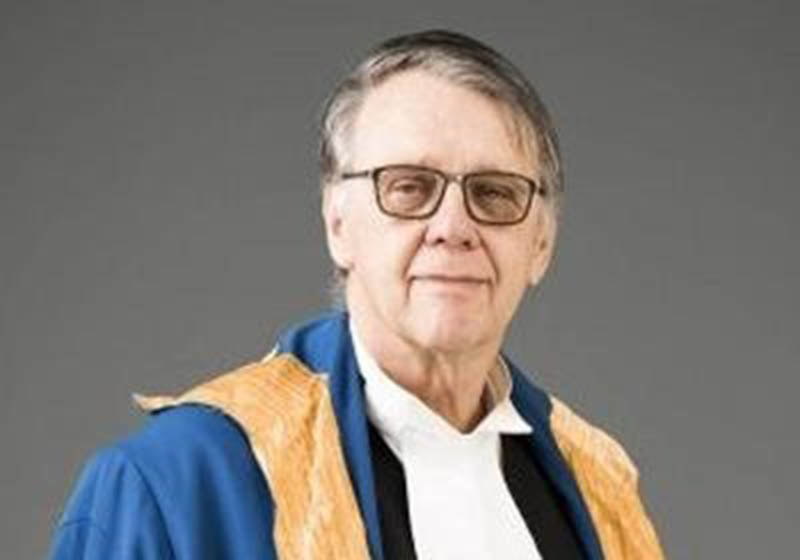(Trinidad Express) Trinidad and Tobago has a crime detection rate of 20 per cent and of that 20 per cent who are charged, 70 per cent are acquitted.
In a properly functioning system, the acquittal rate should be around ten per cent.
So said Caribbean Court of Justice member, Justice Jacob Wit, as he called for a “firm and robust overhaul” of and a “merciless look” at the criminal justice system.
Speaking on day two of the Regional Symposium: Violence as a Public Health Issue–The Caricom Challenge at the Hyatt Regency hotel in Port of Spain on Tuesday, Justice Wit said the right to a fair trial not only applies to the defendant, but included the victims, witnesses and the society as a whole.
Citing the Belize Constitution, he said: “If any person is charged with a crime, then the case shall be afforded a fair hearing; the case, not the accused. Of course the accused must also be afforded a fair trial but he is not the only one, it also includes witnesses and victims.” He said this was the case with every other constitution in the region, except Trinidad and Tobago.
“And there are many stories, …a 16-year-old is raped and it take 16 or 14 years before that case is tried. What kind of justice is that? By then she is 30 she may be married, she may have children, she may have never told her husband what happened to her when she was 16 and now she has to appear before the court and tell it all over again,” he said. “No wonder witnesses are not very happy to do that. But that means that evidence evaporates and therefore a guilty person might be free,” he added. He said witnesses come before the Magistrates Court and wait for hours and they are sent back repeatedly as a result of adjournments. “That is not fair to witnesses…and there must be fairness to the society,” Justice Wit said.
Poor detection rates
Justice Wit said even more important was the issue of detection rates. He said Trinidad and Tobago had a detection rate 20 per cent and of that 20 per cent, there was an acquittal rate of more than 70 per cent. “This is not a way to run a criminal justice system. It is true that a criminal justice system must be fair and must be seen to be fair, but above all it must be effective, protecting the rights of all,” he stated.
He said in Trinidad and Tobago people are on remand awaiting trial for more than ten years which “cannot be justice at all”. He suggested that greater use should be made of plea bargaining and there should be an expansion and improvement of judge-alone trials.
“We recognise that the system as it is now functioning, or actually dysfunctioning, needs a thorough overhaul. Small piecemeal changes cannot do the work,” he said, adding that there has to be a profound look at the criminal justice system.
Responding to St Vincent and the Grenadines Prime Minister Ralph Gonsalves’ statement on Monday that some of the judges seemed to be living on Mars, Justice Wit said he wanted to reassure Gonsalves that all the judges lived here (in the Caribbean) except the judges of the final court of appeal- the Privy Council- who didn’t live on Mars, but in the United Kingdom.
Gonsalves: Lawyers controlling criminal justice system
Continuing his observations of the criminal justice system at the symposium yesterday, Gonsalves said too many judges have allowed too many lawyers who practise criminal law to control the court system.
He said: “The criminal justice system is increasingly becoming controlled by criminal lawyers, or sorry… lawyers who practise in the area of criminal law….We all know the oxygen of the legal profession is money and lawyers used delays in the court system in order to have trials adjourned and adjourned and adjourned and then they complain about how long it (the trial) takes. Sometimes it may be an absence of enough resources. But too many judges have allowed too many lawyers who practise criminal law to control the court system under the guise of protecting the rights of the accused, who are entitled constitutionally to the presumption of innocence, to a fair trial and tribunal within a reasonable time; and nobody would wish to undermine those constitutional protections. But those constitutional protections cannot and do not mean that you must stay a long time over a trial and give adjournment upon adjournment while witnesses migrate and memories fade and then you have to withdraw the prosecution. Because delay is part of the defence and judges ought to know that…So I have to say to my brethren on the bench, they have to start controlling their courts again. Because victims and their families don’t understand and appreciate what is happening.”
Gonsalves noted that people are complaining about the delays, but added, “If a politician opens his mouth, they say you are interfering with the independence of the judiciary. I say justice is not a cloistered virtue and just as I am subject to reasonable criticism, judges and magistrates must be subjected to reasonable criticism. It is not a contempt of the court so to do. And if we cannot shine the light of transparency as to what goes on there and reasonableness, a lot of what we are doing here will be rendered meaningless”.






